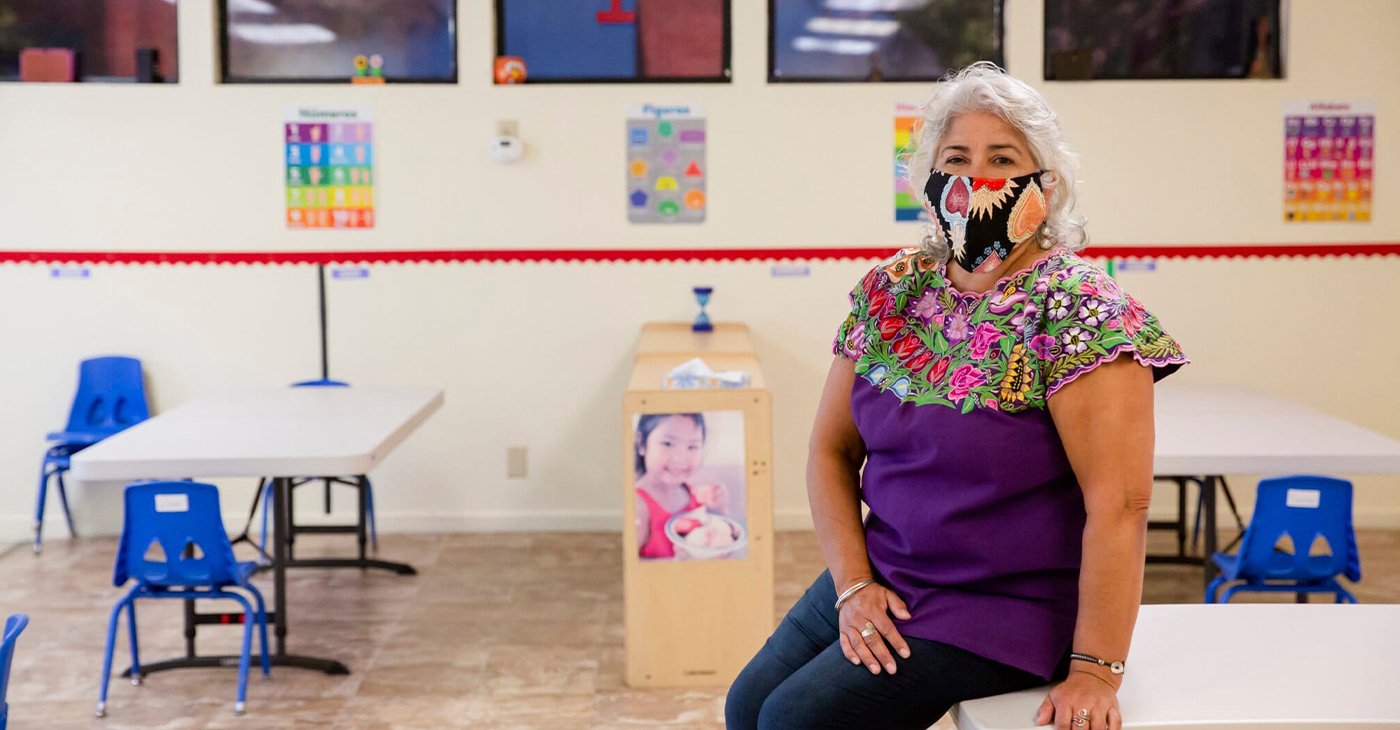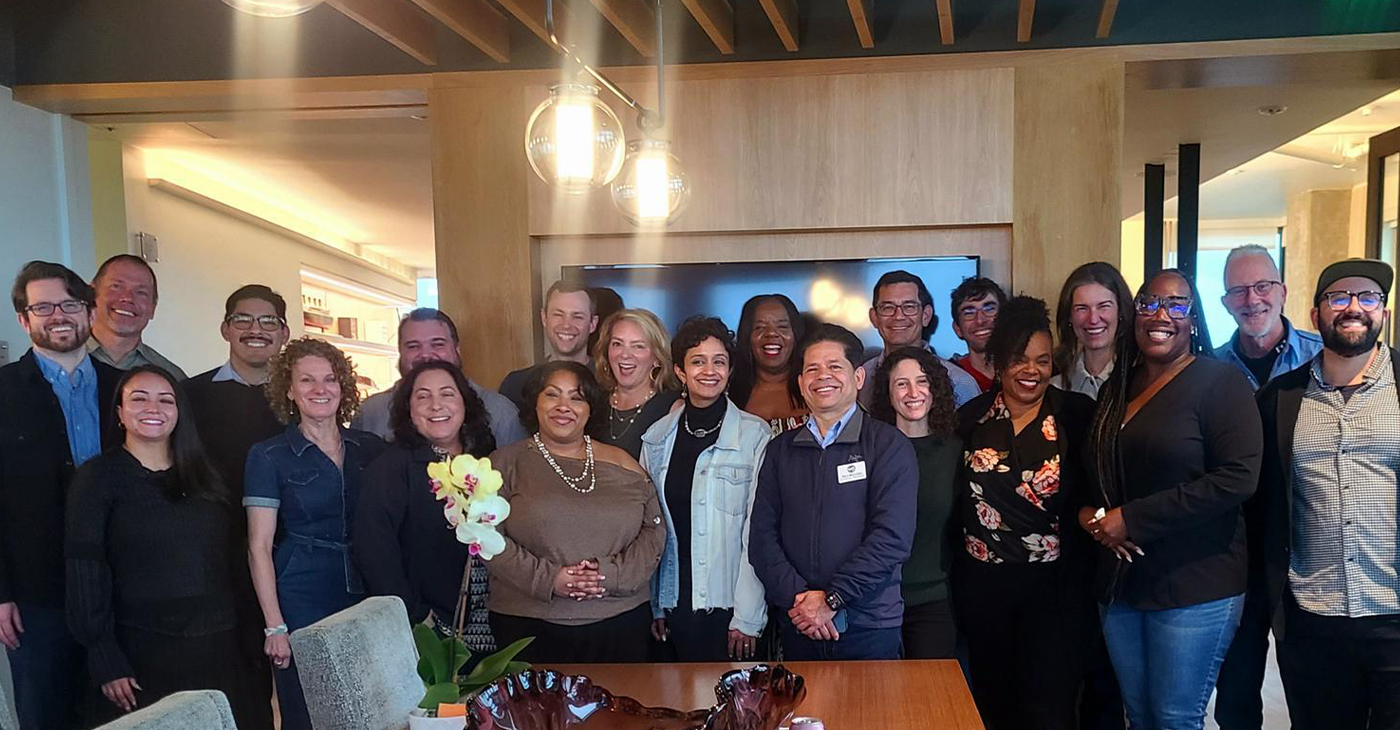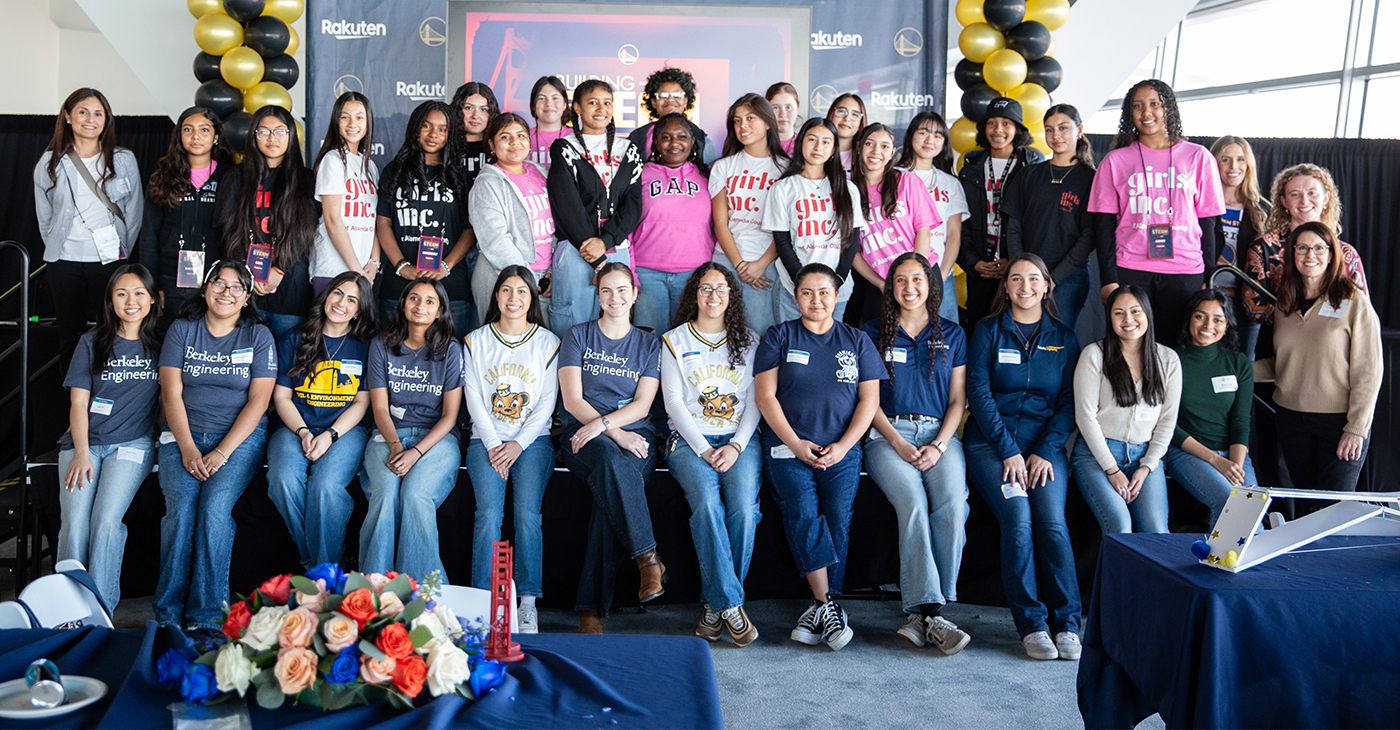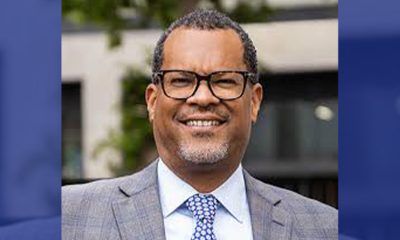Education
The Science of Global Health: What’s Next
International health research at UCSF got its start in the late 1980s, with a small AIDS program in Uganda. A quarter-century later, it is a global research enterprise, with 600 UCSF investigators working in 190 countries.
UCSF’s Global Health Sciences now embraces all that the University has to offer: basic science, social science and clinical care, along with education and emerging areas that incorporate policy and diplomacy.
This month, Global Health Sciences celebrates the 10-year anniversary since its founding as a formal program with two major events: the opening of Mission Hall, where global health faculty will be gathered under one roof for the first time, and an international symposium on global health, featuring many of the giants in the field.
The goal of the conference is to explore what is coming next in global health, so that scientific efforts are targeted in the best way.
“As an academic health sciences university, UCSF plays a critical role in helping to set the global health agenda,” said Jaime Sepulveda, MD, DSc, MPH, executive director of Global Health Sciences. “That’s what we’re doing with this symposium and with our day-to-day work.”
The symposium agenda sprang, in part, out of the recent Science special issue on global health. Sepulveda and UCSF Global Health Sciences were key partners in developing the issue, which includes a perspective from Sepulveda on the state of global health in 2014.
“UCSF has always been science-driven,” Sepulveda said. “That’s why our program is called Global Health Sciences. It’s an indication that we aim to bring the same rigor to this new field of knowledge that we have to all of the University’s other endeavors.”
UCSF scientists are working on major killers, like AIDS, tuberculosis and malaria, as well as lesser-known threats, like dengue, Chagas’ disease and River Blindness.
They are studying how programs work – and why some work better in some places than others. And they are asking the tough questions about how to build health systems in countries that are only now becoming economically strong enough to support them.
Educators are training students at UCSF for global careers and helping clinicians around the world with massive online open enrollment courses, while researchers are mentoring young scientists abroad on research projects and training health workers through large community-based trials.
UCSF faculty are also contributing to major policy debates. Several played key roles in the Lancet Commission on Investing in Health, which laid out a 20-year plan to increase the amount spent on health in poor countries and improve access to care, while calling on the global community to expand research and development for diseases that disproportionately affect poor countries. Together, these efforts could save 10 million lives.
Most recently, Sepulveda and other UCSF faculty have added their voices to the debate over the United Nation’s Sustainable Development Goals for 2030 by urging that the sole health goal now planned for inclusion be practical, concrete and include measurable targets, such as a 40 percent reduction in premature mortality.
Here are some of the faculty members that are leading the way at UCSF Global Health Sciences:
Eric Goosby, MD, is a pioneer of global HIV care. He was President Obama’s Global AIDS Coordinator and head of PEPFAR from 2009 to 2014 and has spent many years working on the problem of how to deliver health care in developing countries with weak health systems.
Goosby’s overarching goal is to make sure that the billions of dollars in foreign aid and the investments that developing nations are increasingly ma
king for themselves truly strengthen their health systems and create the capacity to improve people’s health over the long term.
Haile Debas, MD, is a former chancellor, dean of the School of Medicine and chair of surgery at UCSF. He was the founding executive director of UCSF Global Health Sciences. He is recognized internationally for his contributions to academic medicine and is widely consulted on issues associated with global health.
Debas, who is from Eritrea and went to college in Ethiopia, would like to see a collective effort by the basic science community in the United States to revitalize science education and research in sub-Saharan African universities, which has degraded after years of disinvestment.
Bay Area
Five Years After COVID-19 Began, a Struggling Child Care Workforce Faces New Threats
Five years ago, as COVID-19 lockdowns and school closures began, most early educators continued to work in person, risking their own health and that of their families. “Early educators were called essential, but they weren’t provided with the personal protective equipment they needed to stay safe,” said CSCCE Executive Director Lea Austin. “There were no special shopping hours or ways for them to access safety materials in those early and scary months of the pandemic, leaving them to compete with other shoppers. One state even advised them to wear trash bags if they couldn’t find PPE.”

UC Berkeley News
In the first eight months of the COVID-19 pandemic alone, 166,000 childcare jobs were lost across the nation. Significant recovery didn’t begin until the advent of American Rescue Plan Act (ARPA) Child Care Stabilization funds in April 2021.
Today, child care employment is back to slightly above pre-pandemic levels, but job growth has remained sluggish at 1.4% since ARPA funding allocations ended in October 2023, according to analysis by the Center for the Study of Child Care Employment (CSCCE) at UC Berkeley. In the last six months, childcare employment has hovered around 1.1 million.
Yet more than two million American parents report job changes due to problems accessing child care. Why does the childcare sector continue to face a workforce crisis that has predated the pandemic? Inadequate compensation drives high turnover rates and workforce shortages that predate the pandemic. Early childhood educators are skilled professionals; many have more than 15 years of experience and a college degree, but their compensation does not reflect their expertise. The national median hourly wage is $13.07, and only a small proportion of early educators receive benefits.
And now a new round of challenges is about to hit childcare. The low wages paid in early care and education result in 43% of early educator families depending on at least one public support program, such as Medicaid or food stamps, both of which are threatened by potential federal funding cuts. Job numbers will likely fall as many early childhood educators need to find jobs with healthcare benefits or better pay.
In addition, one in five child care workers are immigrants, and executive orders driving deportation and ICE raids will further devastate the entire early care and education system. These stresses are part of the historical lack of respect the workforce faces, despite all they contribute to children, families, and the economy.
Five years ago, as COVID-19 lockdowns and school closures began, most early educators continued to work in person, risking their own health and that of their families. “Early educators were called essential, but they weren’t provided with the personal protective equipment they needed to stay safe,” said CSCCE Executive Director Lea Austin. “There were no special shopping hours or ways for them to access safety materials in those early and scary months of the pandemic, leaving them to compete with other shoppers. One state even advised them to wear trash bags if they couldn’t find PPE.”
The economic impact was equally dire. Even as many providers tried to remain open to ensure their financial security, the combination of higher costs to meet safety protocols and lower revenue from fewer children enrolled led to job losses, increased debt, and program closures.
Eventually, the federal government responded with historic short-term investments through ARPA, which stabilized childcare programs. These funds provided money to increase pay or provide financial relief to early educators to improve their income and well-being. The childcare sector began to slowly recover. Larger job gains were made in 2022 and 2023, and as of November 2023, national job numbers had slightly surpassed pre-pandemic levels, though state and metro areas continued to fluctuate.
Many states have continued to support the workforce after ARPA funding expired in late 2024. In Maine, a salary supplement initiative has provided monthly stipends of $240-$540 to educators working in licensed home- or center-based care, based on education and experience, making it one of the nation’s leaders in its support of early educators. Early educators say the program has enabled them to raise wages, which has improved staff retention. Yet now, Governor Janet Mills is considering cutting the stipend program in half.
“History shows that once an emergency is perceived to have passed, public funding that supports the early care and education workforce is pulled,” says Austin. “You can’t build a stable childcare workforce and system without consistent public investment and respect for all that early educators contribute.”
The Center for the Study of Childcare Employment is the source of this story.
Activism
District Delegates to State Democratic Party Central Committee Meeting Celebrate Election Victory
Delegates and elected officials were excited for the future of the Democratic Party and making its focus on 1) creating more affordable housing, 2) supporting education, 3) helping working families, and 4) protecting the environment and addressing climate change, with a focus on practical and realistic policy efforts that could have a meaningful impact.

By Ben Gould
Special to The Post
Winners of the February 2025 Assembly District Election Meetings (ADEM) for Assembly Districts 14 and 18 met on Sunday, March 16 to discuss priorities for the California Democratic Party convention in Anaheim coming up in May.
The winners for Assembly District 18 are Genice Jacobs, Bobbi Lopez, Shawn Danino, Ben Gould, Zac Bowling, Nate Hanson, Cathy Adams, Sam Gould, Lauren Wilson, Ashlee Jemmott, and former Oakland School Board Director Sam Davis.
The winners for Assembly District 14 are: Sarah Bell, Neil Tsutsui, Hercules Councilmember Dilli Bhattarai, former Berkeley School Board Director Laura Babitt, former Piedmont Mayor Teddy Gray King, and former Albany Mayor Nick Pilch.
They were joined by Oakland Councilmember Janani Ramachandran, Emeryville Councilmember Courtney Welch, and BART Director Victor Flores to help celebrate their victory.
Delegates and elected officials were excited for the future of the Democratic Party and making its focus on 1) creating more affordable housing, 2) supporting education, 3) helping working families, and 4) protecting the environment and addressing climate change, with a focus on practical and realistic policy efforts that could have a meaningful impact.
Activism
Golden State Warriors Program Is Inspiring Next Generation of Female Engineers
Breaking down barriers and biases that deter young girls from pursuing STEAM subjects is essential for creating a level playing field and ensuring equal opportunities for all. By challenging stereotypes and promoting a culture of inclusivity and diversity in STEAM fields, experts believe young girls can be empowered to pursue their interests and aspirations without limitations confidently. Encouraging mentorship, providing access to resources, and celebrating girls’ achievements in STEAM are all crucial steps in creating a supportive environment that fosters success.

By Y’Anad Burrell
The Golden State Warriors and e-commerce giant Rakuten are joining forces to inspire the next generation of female engineers through Building STEAM Futures, part of The City Calls campaign.
Organizers say the initiative is founded on the idea that science, technology, engineering, arts, and mathematics (STEAM) are crucial fields for innovation and progress, and empowering young girls to pursue careers in these areas is more important than ever. Studies consistently show that girls are underrepresented in STEAM fields, resulting in a gender disparity that limits potential and hinders diversity.
Breaking down barriers and biases that deter young girls from pursuing STEAM subjects is essential for creating a level playing field and ensuring equal opportunities for all. By challenging stereotypes and promoting a culture of inclusivity and diversity in STEAM fields, experts believe young girls can be empowered to pursue their interests and aspirations without limitations confidently. Encouraging mentorship, providing access to resources, and celebrating girls’ achievements in STEAM are all crucial steps in creating a supportive environment that fosters success.
On Saturday, March 8, International Women’s Day, the Warriors and Rakuten hosted 20 middle school girls from Girls Inc. of Alameda County at Chase Center’s Above the Rim for a hands-on bridge-building experience. The young girls from Girls, Inc. of Alameda County had an opportunity to design, build and test their own bridge prototypes and learn the fundamentals of bridge construction from the Engineering Alliance and the UC Berkeley Steel Bridge Team.
This STEAM experience for the girls followed the first session in January, where they took a behind-the-scenes tour of the Golden Gate Bridge, learning about its design and construction from industry experts. The City Calls campaign, tipped off with the unveiling the Warriors’ new bridge-themed City Edition jerseys and court design earlier this year.
-

 Activism4 weeks ago
Activism4 weeks agoUndocumented Workers Are Struggling to Feed Themselves. Slashed Budgets and New Immigration Policies Bring Fresh Challenges
-

 Activism1 week ago
Activism1 week agoWe Fought on Opposite Sides of the Sheng Thao Recall. Here’s Why We’re Uniting Behind Barbara Lee for Oakland Mayor
-

 Activism4 weeks ago
Activism4 weeks agoOakland Post: Week of March 5 – 11, 2025
-

 #NNPA BlackPress2 weeks ago
#NNPA BlackPress2 weeks agoRev. Dr. Jamal Bryant’s Black Church Target Boycott Mobilizes 150,000
-

 Activism2 weeks ago
Activism2 weeks agoSan Francisco Is Investing Millions to Address Food Insecurity. Is Oakland Doing the Same?
-

 #NNPA BlackPress4 weeks ago
#NNPA BlackPress4 weeks agoTrump Moves to Dismantle Education Department
-

 #NNPA BlackPress4 weeks ago
#NNPA BlackPress4 weeks agoFighting to Keep Blackness
-

 #NNPA BlackPress2 weeks ago
#NNPA BlackPress2 weeks agoRecently Approved Budget Plan Favors Wealthy, Slashes Aid to Low-Income Americans
























































